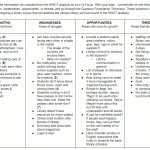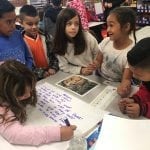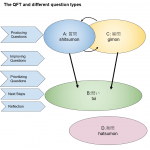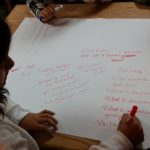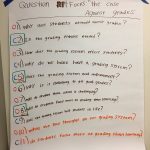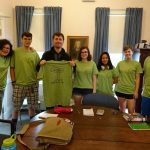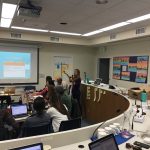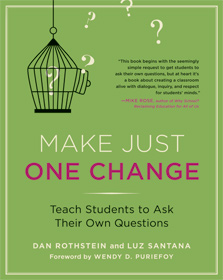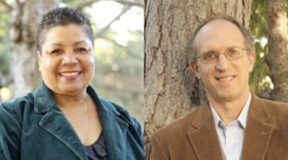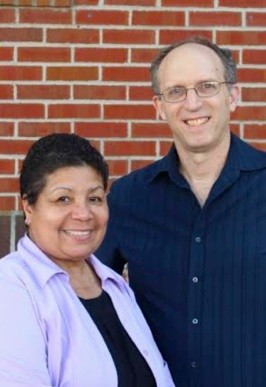In his 1867 doctoral dissertation, German mathematician Georg Cantor argued, “in mathematics, the art of posing a question must be held of higher value than solving it.” Many of Cantor’s contemporaries, mathematicians and religious leaders, did not agree. Much of Cantor’s work, which founded set theory and the concept of transfinite numbers, involved asking questions—why […]
The Question > The Answer: A Discussion of the QFT in Math from the Right Question Institute Archives
Remixing the Question Formulation Technique: Four Explorations and Revelations
by Jennifer Brickey As a teacher-librarian, part of my responsibility is to support classroom instruction and pedagogy. In my initial musings of how to apply the Question Formulation Technique (QFT) in a library setting, I saw it as a means to involve myself in the question development portion of the research process. After taking RQI’s […]
Coaching Through Questions: An Instructional Coach’s Experience with the QFT
A Shift That Just Makes Sense When students ask their own questions, it sparks curiosity, independence, and self-confidence, cultivating students’ ownership over their own learning. This is a shift that just makes sense. So how does an instructional coach, like myself, create this shift and promote curious conversations in the classroom? At our school, asking […]
Join us for a Right Question Twitter QFTChat on Thursday, May 24 2018
The Right Question Institute invites you to join us for a Twitter chat (#QFTChat) on the evening of Thursday, May 24th (8pm ET). In the spirit of the QFT, rather than following the traditional Twitter chat format, we will pose several statements throughout the hour about different aspects of QFT design and facilitation. We will […]
Exploring Four Words for “Question” in Japanese
I’ve been pondering the word “question” for the last couple months. How do you translate “Question Formulation Technique” into Japanese – a language with four words for “question?” by Tomoko Ouchi Not all questions are the same I was born, raised and educated in Japan, and as The Right Question Institute’s international program specialist, I […]
The Question Formulation Technique in Japan
One year after an eye-opening trip to Japan, the Right Question Institute’s Dan Rothstein reflects on that country’s growing interest in the Question Formulation Technique and how educators in Japan face similar challenges – and share similar commitment – to those in the United States. Educators in Japan, as elsewhere, are seeking ways to provide a […]
Right Question Stories from the Field: Beowulf, Romeo and Juliet, and Modern-Day Hester Prynnes
How English teachers use the Question Formulation Technique to support students as they pursue deeper understanding of texts and develop their critical thinking. By Chris Orchard Teaching English is more than drilling students in the details of punctuation, pronouns and parallel structure, though such things are important. It’s more than lecturing about poetry and prose, […]
“Is the grading process needed?” Community College Students Question the Role of Grades
About 25 miles east of Los Angeles is Mt. San Antonio College, one of the largest community colleges in the state of California. Mt. SAC, as it is affectionately known as, has a diverse student population (~55% Latino, ~19% Asian, & ~11% White/ Non-Hispanic). The majority of students receive some financial aid (~75%) and most […]
Branching Questions: Using the Question Formulation Technique in a Youth Tree Stewardship Program
by David Meshoulam, Ph.D. Editor’s Note: Check out this step-by-step video of David facilitating the Question Formulation Technique in a high school science class. This past summer I led a group of teenagers in Watertown, MA, in what will hopefully become an annual Trees for Watertown’s Teen Tree Stewardship Program. During the program teens learned about about […]
Integrating the Question Formulation Technique in PBL through the Launch
by Jennifer Pieratt, Ph.D. Leading organizations in the field of Project Based Learning (PBL) have identified inquiry as a characteristic of high quality PBL, and PBL facilitators are often interested in ways to sustain student inquiry; however after reflecting on my work in the field as an educator supporting teachers I have come to feel […]
